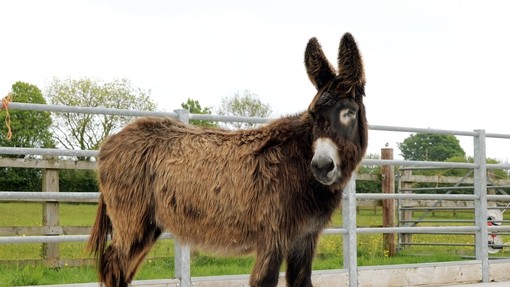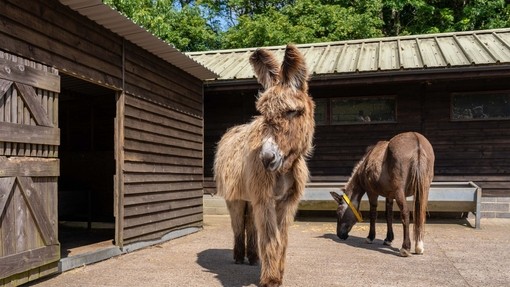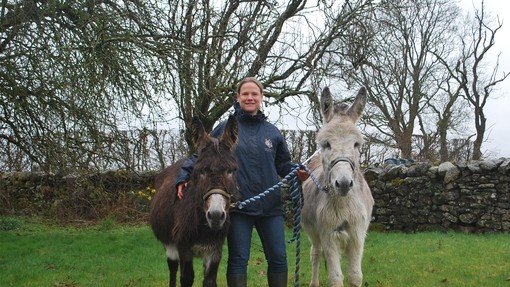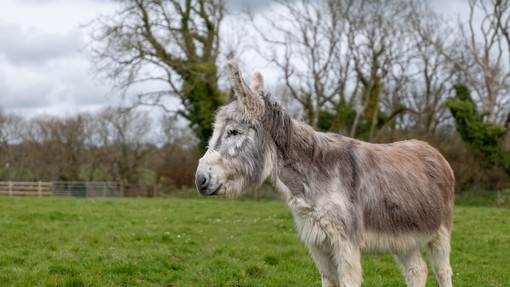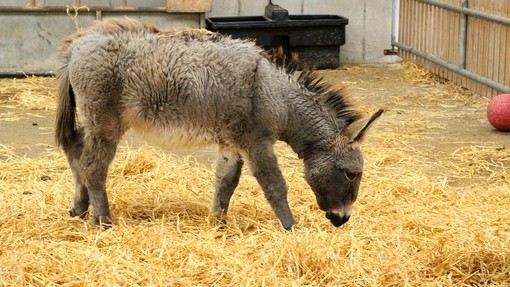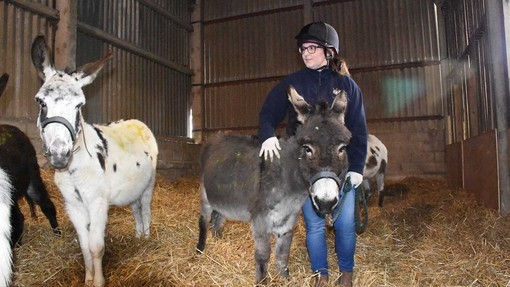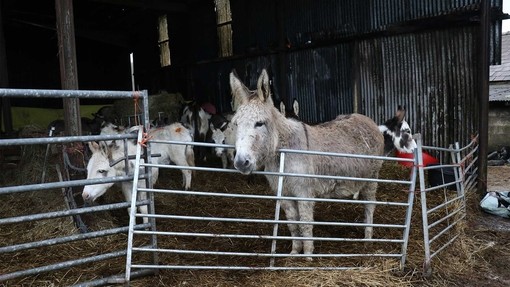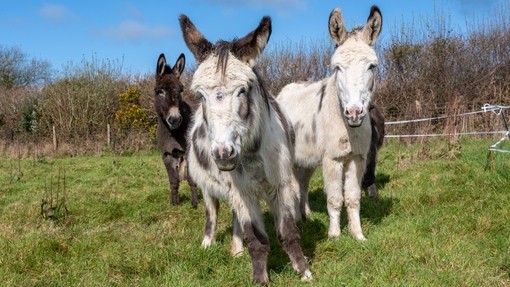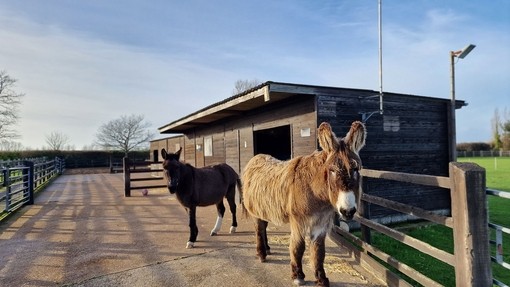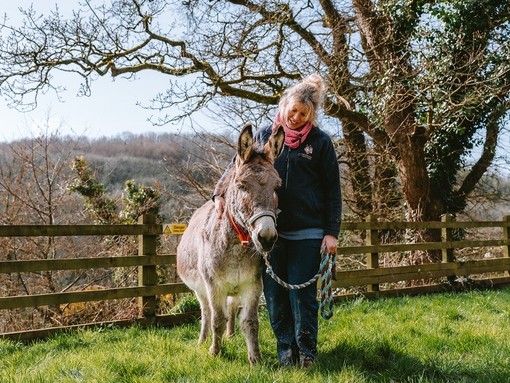
Clarkie's behaviour journey
In 2018, a donkey called Clarkie arrived at our Derbyshire sanctuary. His relinquishment into The Donkey Sanctuary’s care was caused by the extremely defensive behaviour he projected to anybody who approached him.
Clarkie’s ears went back. His head dipped. Then, he would swing his rump towards the direction of the approaching person before kicking out with both legs. Time and time again, Clarkie’s show of defensive behaviour had been a key cause of concern for his owner.
Exasperated, the owner contacted our teams for help, and agreed to relinquish Clarkie into our care. His case was brought to the attention of Keira Benham, who at the time was supervisor at our Derbyshire sanctuary. Now a Donkey Welfare Adviser, Keira still utilises her experience to support nervous donkeys in rescues and relinquishments.
Remembering when she first encountered Clarkie, Keira says: “We were at Buxton and Clarkie was being assessed by the vet. I recall the vet saying she had concerns that Clarkie’s behaviour was bordering on being unmanageable.
“She genuinely thought it was touch and go whether Clarkie’s behaviour could be modified and his attitude towards humans could be changed.”
However, Keira didn’t see a Clarkie as a lost cause. She observed an intelligent animal who had adapted his behaviour to avoid being approached and interacted with.
Clarkie was a donkey who demanded his own space and would kick out at any invader into his territory.
“Hearing the vet’s concerns only motivated me more to help Clarkie,” Keira recalls. “It sparked a real desire in me to turn him around. I knew it wasn’t going to be easy.”

Taking one step at a time
In the weeks that followed, Keira developed a plan of patient tiny steps. Every day, she approached Clarkie’s paddock and stood gazing at him.
A short while later, she would return and repeat. She didn’t speak. She didn’t move suddenly. She just looked at Clarkie, who stood warily at the back of his paddock.
“When Clarkie looked back at me, I walked away,” Keira says. “I wanted him to understand that just because I was showing a presence, nothing was going to happen to him. I wanted him to mirror my calm, relaxed demeanour.”
Within a week, Keira had entered Clarkie’s paddock. A fortnight later, Clarkie would stand calmly and allow Keira to fit him with a head collar. By the eighth week of Keira’s plan, she was picking up this once-unapproachable donkey’s feet.
“Every milestone was the result of patience and small steps,” Keira says. “The next stage after initially looking at him was to begin talking to him.
“Then, once he was comfortable around me and used to the sound of my voice, I offered him some form of food reward placed on the floor.
“This was to make Clarkie realise that there was a positive aspect to humans and allow him to change his mindset towards people.”
In the eight weeks that Keira worked with Clarkie, she reached a point where she could walk into his paddock at any time and confidently scratch his withers (ridge between the shoulder blades) without Clarkie showing his original fear of human contact.
“I remember when he first let me scratch him,” she adds. “I was elated. It was that moment where I could see that lightbulb go off in his head. He knew that humans weren’t enemies and nothing bad was going to happen to him.
“From then on, I started to see a softer side to Clarkie. He was no longer tense around people, his body remained relaxed. This is because we always left his paddock on a positive, so he started seeking out those interactions.
“He even began to venture towards the gate when I left his paddock.”
Not every step of Clarkie’s behavioural journey was smooth, but Keira was ready to adapt her approach at a moment’s notice to accommodate his needs.
When he became startled or uncomfortable, she stepped back and let him settle. Thankfully, it didn’t take too long for him to realise everything was okay.

Moving to Devon
Clarkie and Keira soon went their different ways. Keira left the Derbyshire sanctuary to begin her role as a Donkey Welfare Adviser, while Clarkie made the move south to our Paccombe Farm site in Devon in in 2020.
In the years since his arrival, he has settled excellently and is now part of herd numbering more than 100 donkeys.
Lisa Coles, one of our grooms at Paccombe, says: “Although he was quite scared after his arrival at Paccombe, Clarkie is much better now.
“He arrived with a large group of donkeys. He tends to stay by these donkeys, Donald, Dingo and Jock, even to this day. Although he’s part of their group, Clarkie is still a single donkey – he hasn’t bonded with any particular donkey at Paccombe.
“He is very chilled out. He loves spending time with the volunteers who visit Paccombe and always approaches them for cuddles!”
Want to know more about donkey behaviour?
Share this page
Tags
- News

